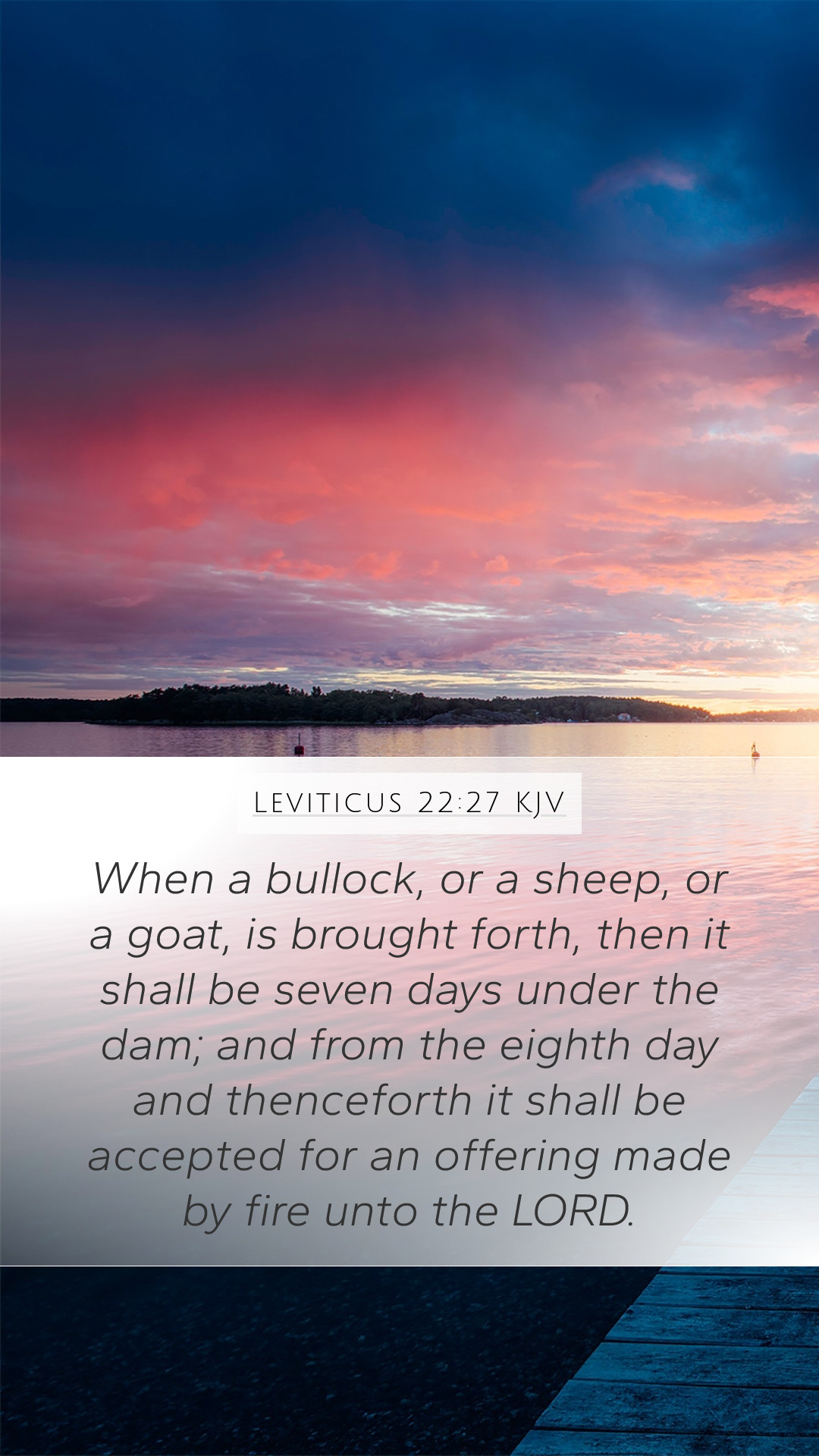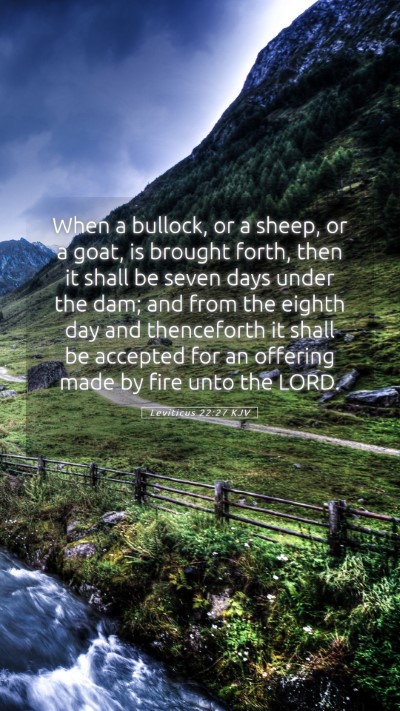Understanding Leviticus 22:27
Leviticus 22:27 states: "When a bull, a sheep, or a goat is born, it shall be seven days with its mother; and from the eighth day on, it shall be accepted as an offering made by fire to the Lord." This verse presents important instructions regarding the offerings made by the Israelites, emphasizing principles of timing and perfection in sacrificial practices.
Bible Verse Meanings and Interpretations
The meaning of Leviticus 22:27 can be understood in several layers:
- Significance of Timing: Matthew Henry emphasizes that the seven days with the mother represents a period of nurturing, reflecting the care and naturalness that is to be present in any offering made to God.
- Symbolism of the Eighth Day: Albert Barnes denotes the eighth day as a significant point of transition, whereby the animal is considered ripe for offering, implying a spiritual readiness and perfection.
- Divine Standards: Adam Clarke points out that these guidelines were set to ensure that offerings were free from defect and in their prime, upholding the principles of holiness and dedication that God set forth.
In-Depth Bible Verse Analysis
The context of this command illustrates the meticulous nature of the Levitical laws. God’s guidelines not only outline the physical attributes required of the offerings but also signify deeper spiritual truths.
- Holiness of Offerings: Each offering was to represent the best and purest devotion to God, mirroring the holiness demanded of His people.
- Covenantal Relationship: The period of nurturing reflects God's desire for a relationship that is developed and mature, emphasizing preparation before coming into His presence.
- Foreshadowing Christ: Some scholars interpret these regulations as foreshadowing the ultimate sacrifice of Jesus Christ, who would not be offered until His time was complete—perfect and wholly acceptable to God.
Commentary Insights
Drawing from various commentaries provides a rich tapestry of understanding, allowing us to dissect Leviticus 22:27 through different lenses.
- Matthew Henry: He notes the grace of God in allowing a period of nurture before sacrifice, highlighting God's desire to see His creation flourish even before its offering.
- Albert Barnes: He elaborates that this law, while specific to the Israelites, reflects the timeless principle of reverence before God and the importance of offering Him what is truly best.
- Adam Clarke: Clarke warns against interpreting such regulations as mere ritualism, reminding us that they point toward an inward reality of commitment and purity of heart.
Application of This Verse to Daily Life
Understanding Scripture, particularly challenging passages like Leviticus 22:27, can guide our personal offering to God, encouraging care, reflection, and purity in our worship and service.
- Preparation in Worship: As we come to God, we must ensure our hearts and lives are in alignment, free from distractions or impurities.
- Nurturing Relationships: Just as the animal is nurtured for a period before being offered, we should nurture our spiritual lives, growing in maturity and faith.
- Offering Our Best: In our acts of service and worship, we are called to bring our best to God, reflecting the quality of the animals demanded for sacrifice.
Conclusion
The verse Leviticus 22:27 reminds us of the importance of intentionality in our offerings to God. It illustrates that preparation, purity, and care are paramount in our relationship with Him. Engaging with this scripture through bible study tools and bible study resources can deepen our understanding and enhance our worship practices.
Related Bible Cross References
- Exodus 12:5: Instructions concerning the Passover lamb and its condition.
- Leviticus 1:3: The qualifications for burnt offerings.
- Deuteronomy 15:21: Regulations regarding the giving of perfect animals.


